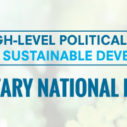
Search
World leaders on multidimensional poverty in the UN General Assembly 2020
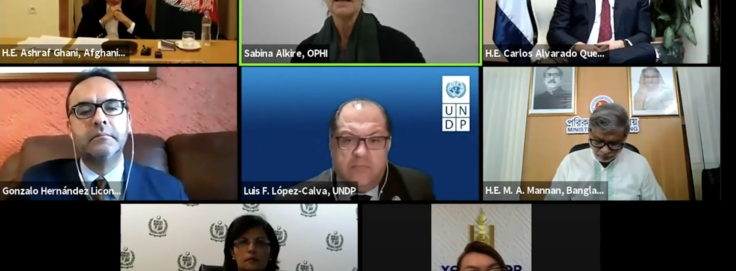
When distinguished world leaders came together for a high-level side event at the UN General Assembly, they shared an array of insightful ideas on how poverty is at a crossroad. As the pandemic continues to rage through many parts of the planet, the session evoked powerful messages of reflection, leadership, collaboration and hope.
The leaders spoke broadly about the fresh challenges posed by the pandemic to the lives of people living in multidimensional poverty and the value and use of national Multidimensional Poverty Indices (MPIs) as policy tools during the crisis. Here is a quick glance at some of the most powerful messages from the virtual event, organised on 24 September 2020 by the Governments of Chile and Pakistan, the UNDP, the Multidimensional Poverty Peer Network (MPPN) and OPHI from the University of Oxford.
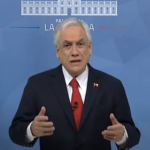 Sebastian Piñera, President of Chile:
Sebastian Piñera, President of Chile:
In this era of the pandemic and global recession, the MPI is a fundamental tool to improve the efficacy and reach of policies for the poor and the middle class. Yes, it is a measure whose destination lies in shaping powerful, strategic and feasible ways to accompany those whose life projects have been overwhelmed, so they can strive forward again.
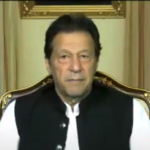 Imran Khan, Prime Minister of Pakistan:
Imran Khan, Prime Minister of Pakistan:
(Poverty) is the most pervasive violation of human rights…The COVID virus does not discriminate, but it is the poor and the vulnerable who have suffered the most from it…Apart from the direct attack on poverty, we need to address its systemic causes at the national and international levels, the structures of finance, production and trade must be made fair and equitable.
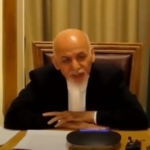 Ashraf Ghani, President of Afghanistan:
Ashraf Ghani, President of Afghanistan:
The COVID-19 pandemic is a hyper event, an event so destructive; it marks a rupture…between the past and the future…It forced us to rethink how we lead…to listen better and to act quicker…Poverty is multidimensional…it certainly did not start with COVID…MPI’s utility lies in both providing a solid basis for policy formation and monitoring of policy and implementation.
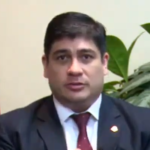 Carlos Alvarado Quesada, President of Costa Rica:
Carlos Alvarado Quesada, President of Costa Rica:
MPI is a change of paradigm, it’s a change we see, which can tackle poverty…It is ethically relevant because we are addressing to those who need it the most… With MPI…you are not attacking only what income means in the life of the poor, you are going to the roots of the problem…that shift in paradigm changes not only the vision of how you see poverty, but how you address it.
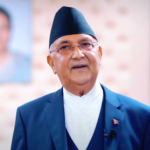 KP Sharma Oli, Prime Minister of Nepal:
KP Sharma Oli, Prime Minister of Nepal:
We have institutionalized our approach of looking at poverty through the prism of more than absolute income…Investing in people and preventing them from relapsing into poverty remains the key challenge…The COVID pandemic has severely impacted our effort to end absolute poverty and reducing all other forms of poverty as soon as possible…I firmly believe that with sincere national endeavour and larger global development cooperation and dedicated support measures, we can overcome this pandemic.
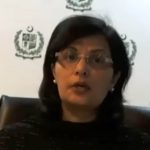 Sania Nishtar, Minister of Poverty Alleviation, Pakistan:
Sania Nishtar, Minister of Poverty Alleviation, Pakistan:
I genuinely believe COVID-19 has created an inflection point. Today we have the power to make decisions to reverse decades of neglect and sparse progress, and to provide social protection to the four billion people globally who lack it…And it is here that metrics like the MPI will help tremendously, in shaping public policy in the right direction.
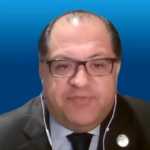 Luis Felipe López-Calva, Assistant Administrator and Regional Director for Latin America and the Caribbean, UNDP:
Luis Felipe López-Calva, Assistant Administrator and Regional Director for Latin America and the Caribbean, UNDP:
The Multidimensional Poverty Index can be an important instrument to coordinate, target and design policy responses to the crisis…The COVID-19 crisis is fundamentally a systemic crisis that has stressed health, education, social protection, labour market, and fiscal systems simultaneously. It is thus a crisis of governance.
 Cecilia Scharp, Assistant Director General, Swedish International Development Cooperation Agency (SIDA):
Cecilia Scharp, Assistant Director General, Swedish International Development Cooperation Agency (SIDA):
The pandemic was not part of the plan where the sustainable development goals were agreed. We were prepared for an uphill struggle, but the recent events have made the climb that much steeper and changed the settings in a fundamental way…But what has not changed is our firm commitment to eradicate poverty in all its forms everywhere.
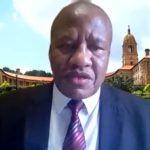 Jackson Mthembu, Minister in the Presidency, South Africa:
Jackson Mthembu, Minister in the Presidency, South Africa:
… Fresh data on multidimensional poverty in South Africa… (will help) policy makers have a better understanding of the poverty situation, better planning, more accurate targeting and more useful for poverty reduction strategy development…Countries can share experiences and learn from one another… this is important and provide a basis for the use of empirical evidence in our daily efforts to address the poverty challenge.
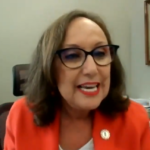 Rebeca Grynspan, Secretary-General of SEGIB:
Rebeca Grynspan, Secretary-General of SEGIB:
The MPI allows us to incorporate dimensions that are a priority, such as health, education – where we know that the inequality gaps are expanding. 32 million children have been excluded from the schooling system in Latin America and we expect school desertion rates to keep going up. If we do not deal with this with urgency, multidimensional poverty will go up greatly in the region in spite of the efforts that countries are making.
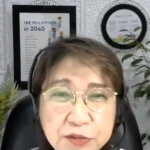 Rosemarie G. Edillon, Undersecretary, National Economic and Development Authority, Philippines:
Rosemarie G. Edillon, Undersecretary, National Economic and Development Authority, Philippines:
The pandemic has demonstrated the need to include another dimension in the MPI which is resilience…What would be the relevant indicators of resilience? How do we incorporate this? …Another important research would be to determine how COVID-19 has affected the MPI levels of families.
In no uncertain terms, world leaders touched upon some of the most important ideas framing multidimensional poverty against the backdrop of an unprecedented crisis. However, their statements highlighted how collective action, deliberation and a strategic adoption of multidimensional poverty indices at various levels holds the key to the future. As Sabina Alkire stated when wrapping up the session, the words, insights and steely courage of these top leaders represent an opportunity for us to turn a corner on poverty.
This article was published in Dimensions 11
















